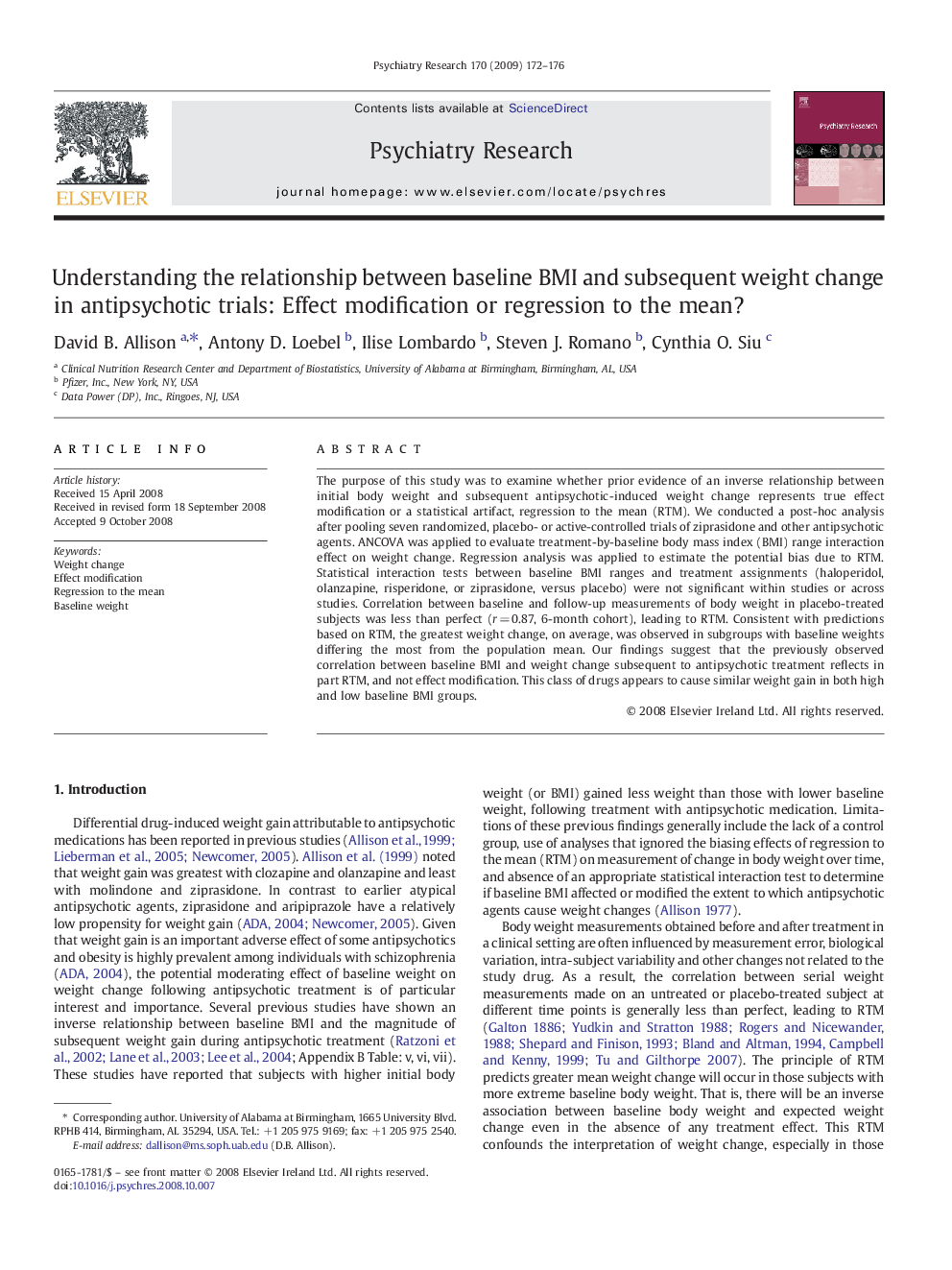| Article ID | Journal | Published Year | Pages | File Type |
|---|---|---|---|---|
| 332787 | Psychiatry Research | 2009 | 5 Pages |
The purpose of this study was to examine whether prior evidence of an inverse relationship between initial body weight and subsequent antipsychotic-induced weight change represents true effect modification or a statistical artifact, regression to the mean (RTM). We conducted a post-hoc analysis after pooling seven randomized, placebo- or active-controlled trials of ziprasidone and other antipsychotic agents. ANCOVA was applied to evaluate treatment-by-baseline body mass index (BMI) range interaction effect on weight change. Regression analysis was applied to estimate the potential bias due to RTM. Statistical interaction tests between baseline BMI ranges and treatment assignments (haloperidol, olanzapine, risperidone, or ziprasidone, versus placebo) were not significant within studies or across studies. Correlation between baseline and follow-up measurements of body weight in placebo-treated subjects was less than perfect (r = 0.87, 6-month cohort), leading to RTM. Consistent with predictions based on RTM, the greatest weight change, on average, was observed in subgroups with baseline weights differing the most from the population mean. Our findings suggest that the previously observed correlation between baseline BMI and weight change subsequent to antipsychotic treatment reflects in part RTM, and not effect modification. This class of drugs appears to cause similar weight gain in both high and low baseline BMI groups.
